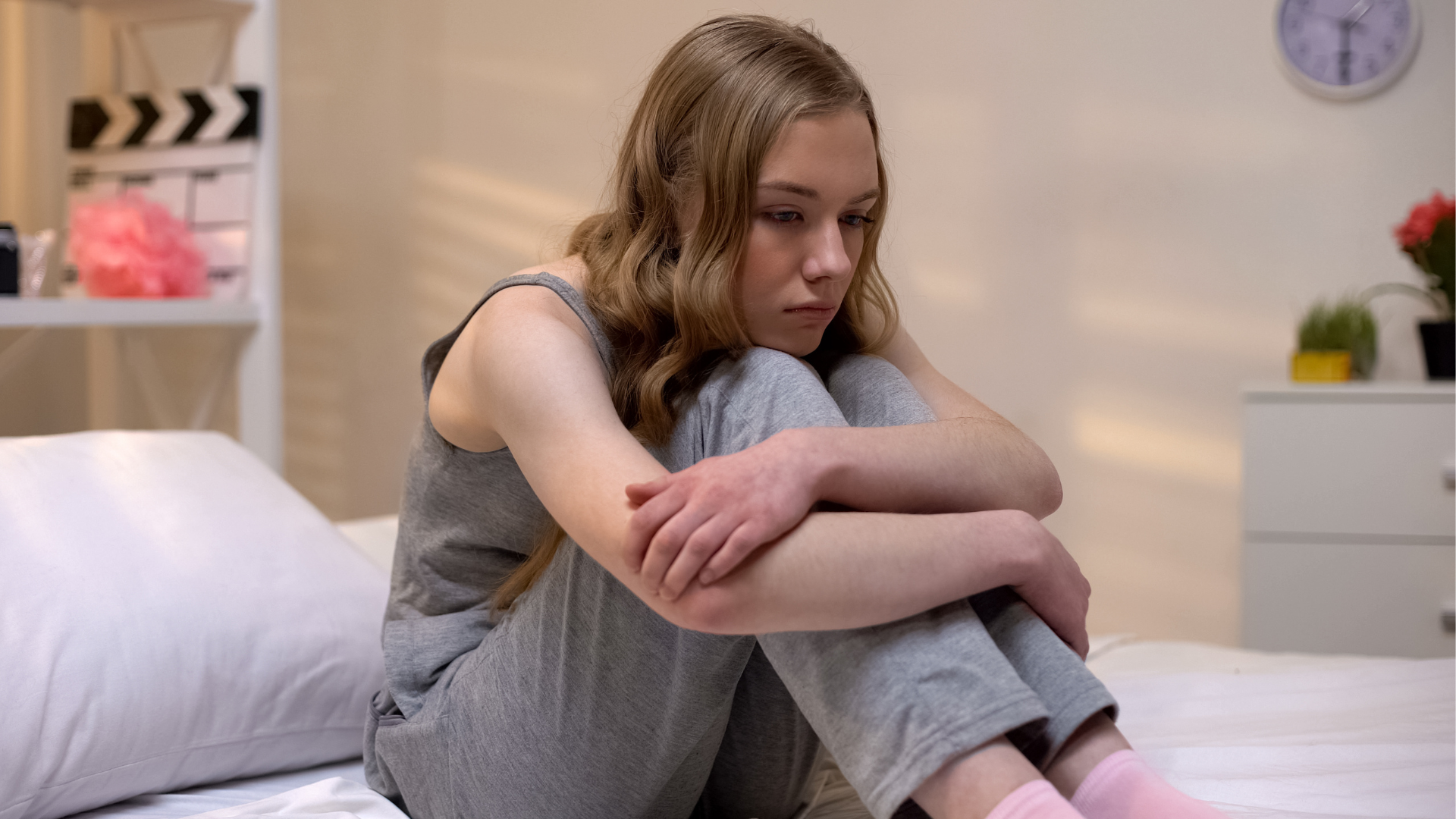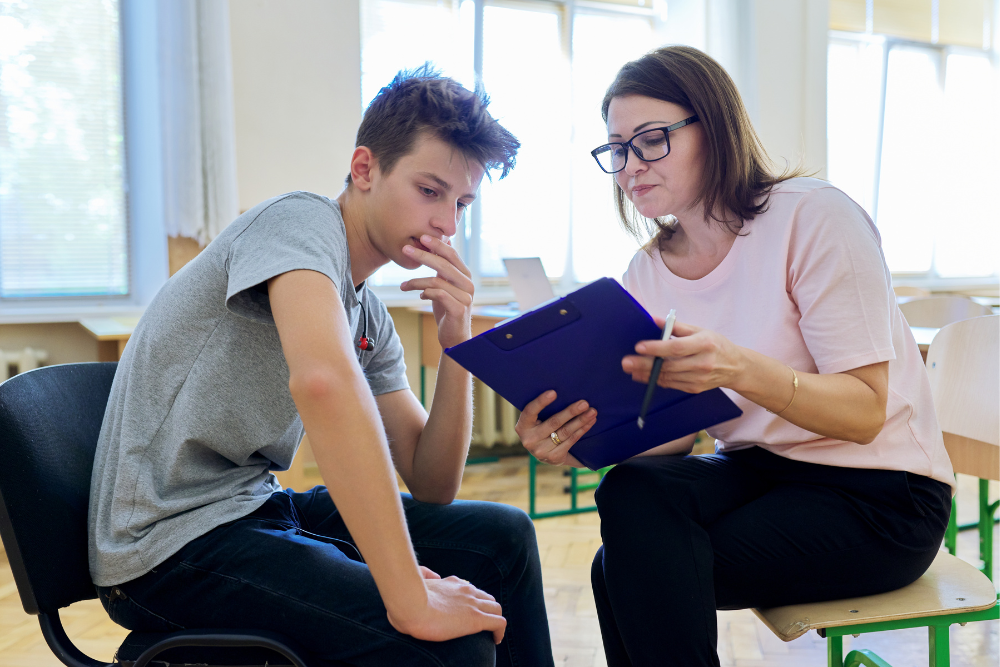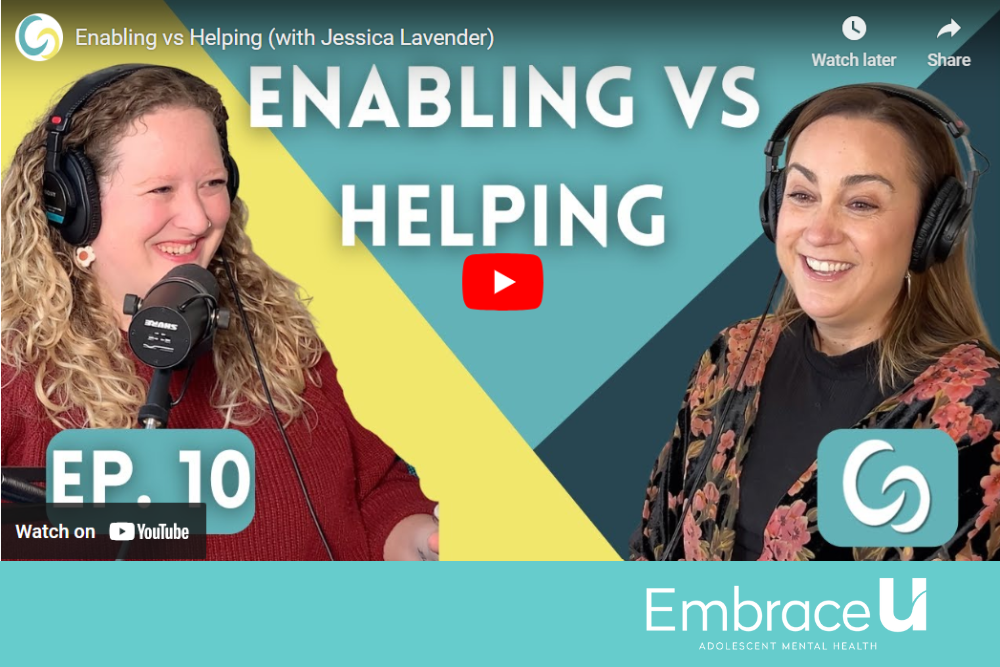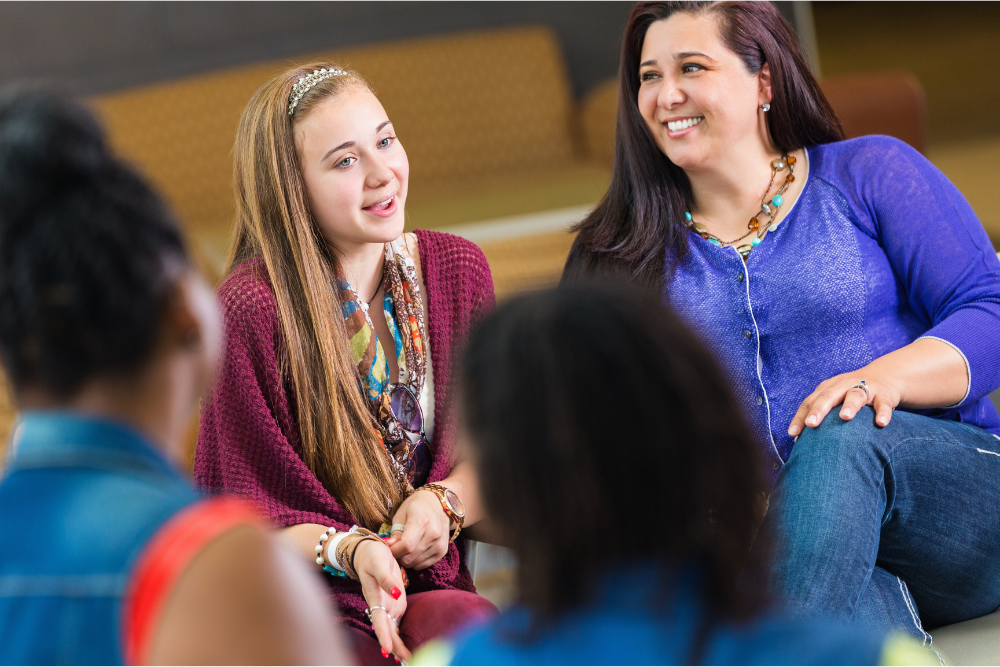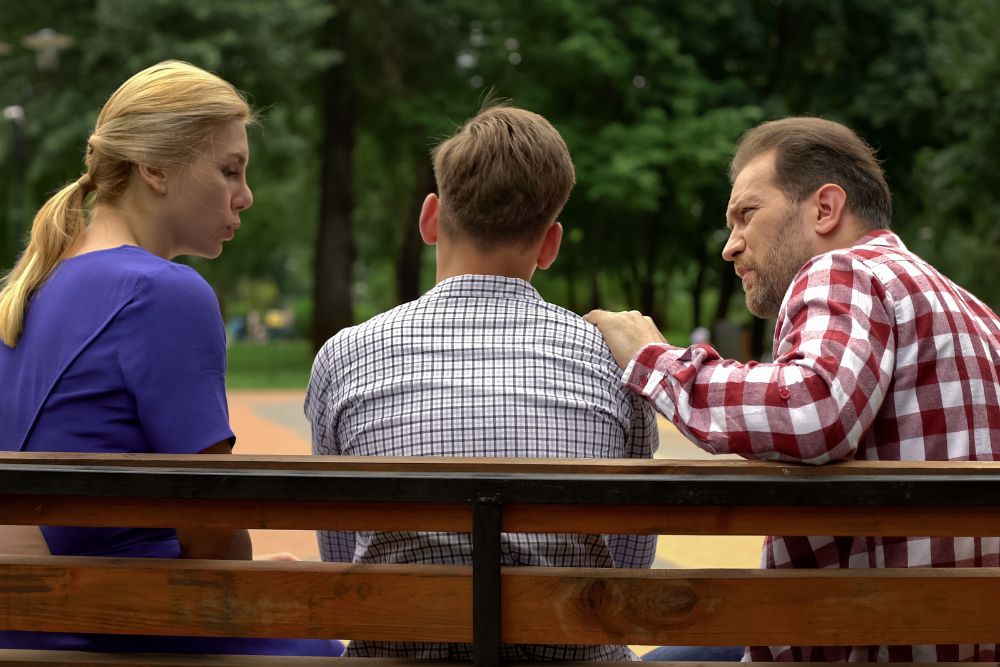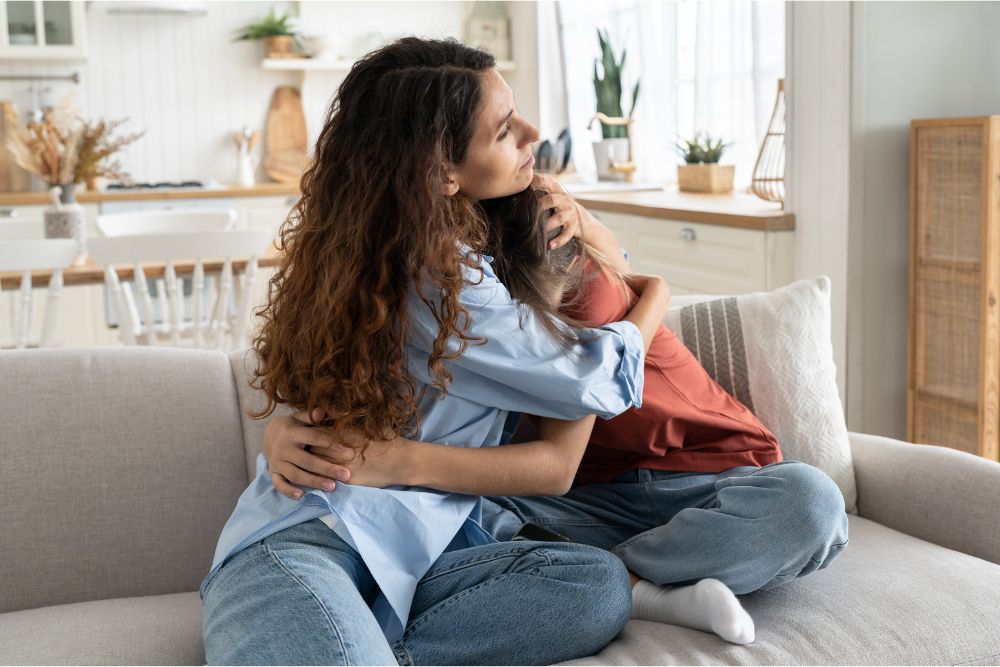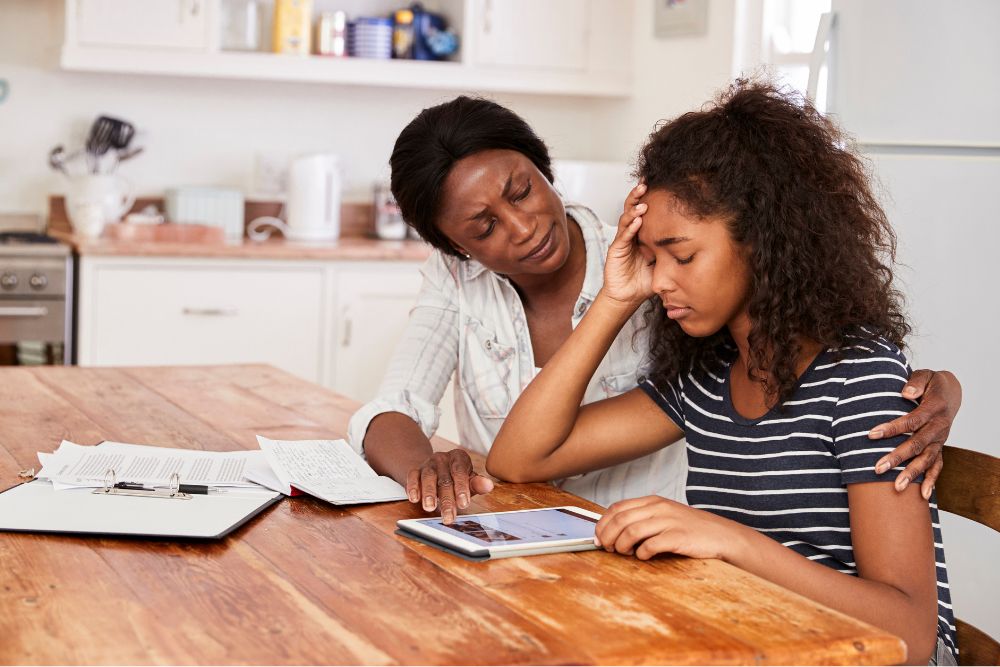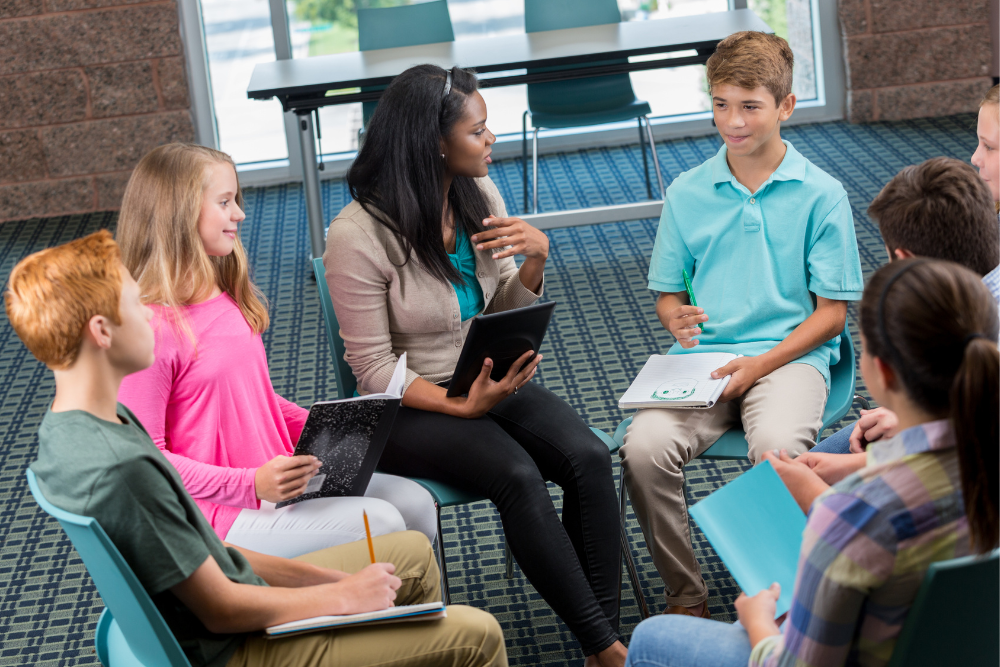One of the most common mental health conditions affecting children and teens is anxiety. More than 9% of children aged 3-17 experience diagnosed anxiety each year, according to the Centers for Disease Control and Prevention. Yet many parents find it hard to recognize childhood anxiety and don’t know how to help a child cope with it. An untreated anxiety disorder can interfere with a child’s relationships, schoolwork, and self-esteem.
Symptoms of anxiety may not always be easy to spot. Children can internalize or even hide their feelings, yet anxiety could dominate their thoughts. In some cases, anxiety might impact one aspect of a child’s life, such as playing a sport or dealing with social situations, while they seem to be doing fine in other areas.
Understanding Anxiety in Children
Anxiety is a natural response to stress or danger. It’s normal for children to be afraid of the dark, or teens to feel anxious about making new friends in a new school. In typical situations, anxiety passes within a few days. However, for some children, anxiety can become excessive or generalized, interfering with their daily life.
Anxiety can manifest as fear or worry about a specific situation, such as going to school or participating in group activities. If your child is experiencing significant distress, panic attacks, or extreme shyness, they may have an anxiety disorder. Understanding the different types of anxiety disorders, such as generalized anxiety disorder, social anxiety disorder, and separation anxiety disorder, can help you better recognize the symptoms and seek proper treatment.
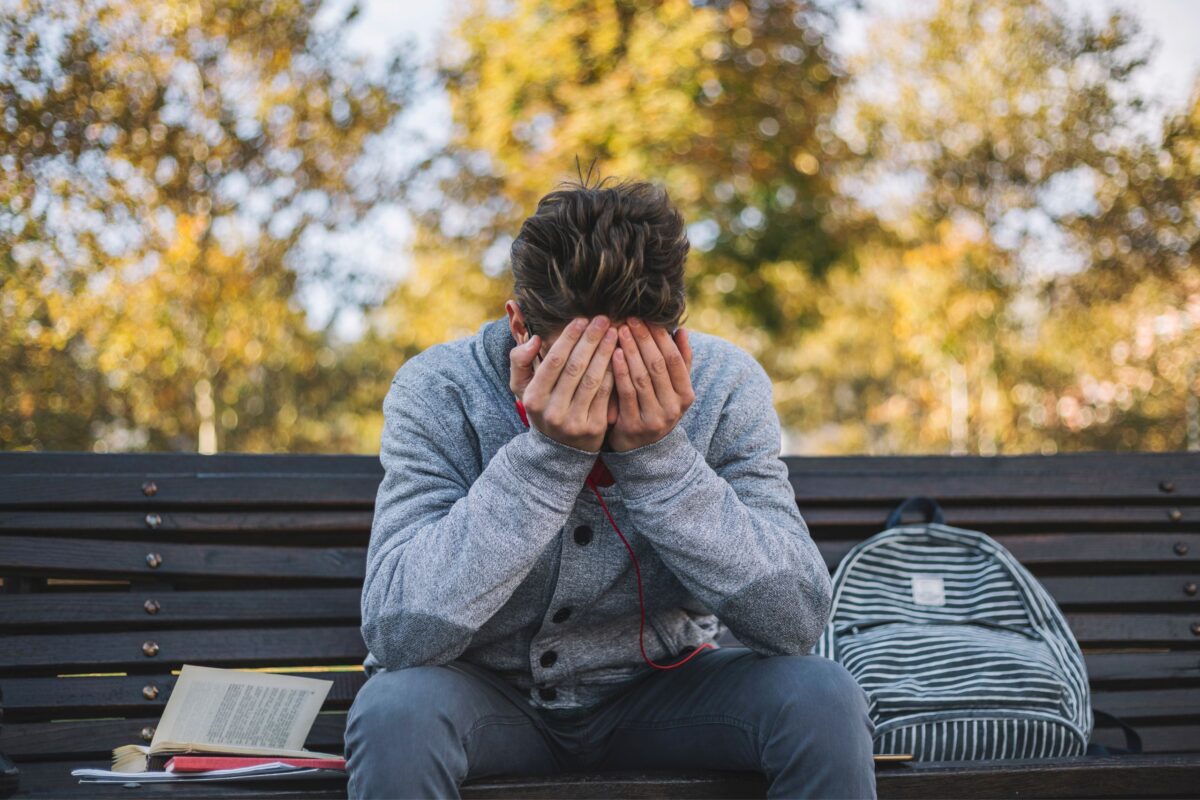
Recognizing the Symptoms of Childhood Anxiety
Children may not always have the language or ability to express their anxiety, so it’s important to be observant of their behavior. Symptoms of childhood anxiety can include excessive worry, irritability, trouble sleeping, and avoiding social situations or activities. Children with anxiety disorder may also experience physical symptoms such as headaches or stomachaches, and panic attacks. Keep in mind that every child may experience anxiety differently, and some symptoms may be subtler than others. It’s important to trust your instincts as a parent if you suspect something is wrong.
What are the signs of anxiety in children?
- Difficulty controlling feelings of worry
- consistent crying
- fear of leaving home
- feeling tense and fidgety
- feeling dizzy or tired
- changes in diet
- trouble sleeping
- trouble concentrating
- trouble breathing
- prolonged upset stomach
- rapid heartbeat
- headaches
Professional Support for Childhood Anxiety
If you suspect your child may have an anxiety disorder or is struggling with anxiety, it’s important to seek professional support. A mental health professional, such as a licensed therapist or psychiatrist, can provide an accurate diagnosis and develop a treatment plan tailored to your child’s needs. Additionally, school counselors or pediatricians can provide referrals for mental health services. Remember, you are not alone in this journey and there is no shame in seeking help for your child.
Treatment for childhood anxiety can include individual or group therapy, medication management, and family counseling. Talk therapy has proven to be an effective treatment for anxiety disorder, helping a child express what they are feeling while teaching them to change the way they think and behave. Many treatment programs help families develop coping skills to manage the symptoms of anxiety and return to normal function.
Support Your Child at Home
As parents, there are numerous ways you can support your child with anxiety. One of the most important ways is to maintain open communication and create a supportive environment. Encourage your child to talk about their feelings, and be sure to honor and validate their experiences. It’s also important to educate yourself on childhood anxiety and its treatments and involve your child in developing a plan to manage their symptoms. This plan may include therapy, medication, lifestyle changes, or other interventions. Lastly, make sure your child knows that they are loved and accepted, regardless of their anxiety. This can help reduce their feelings of shame or stigma surrounding their condition.
Practice Self-care
Supporting a child with mental health issues can be emotionally exhausting, so it’s important to take care of yourself as well. Practice self-care by participating in activities you enjoy, setting boundaries with others, seeking support from friends or a therapist, and practicing mindfulness or meditation. When you are well-rested and in a good mental state, you can better support your child through their journey with anxiety.
Childhood anxiety is a common mental health condition, but it can be difficult to recognize and manage without the proper support and resources. As a parent, it’s important to be observant of your child’s behavior, seek professional help when needed, and create a supportive environment at home. Remember, you are not alone in this journey and there is no shame in seeking help for your child or yourself. By taking a proactive and compassionate approach, you can help your child manage their anxiety and improve their overall mental health and well-being.
Located in Brentwood, TN, Embrace U is an intensive outpatient treatment program (IOP) specifically designed for children aged 10-18. As an IOP, our mental health clinic gives participants and their families the support they need through individual, group, and family therapy. With the help of our experienced treatment team, you and your teen can overcome mental health struggles and grow stronger together!
Does your teen need help? Call Embrace U today!

